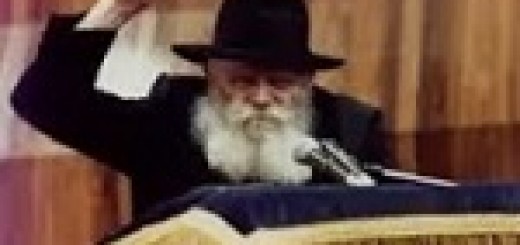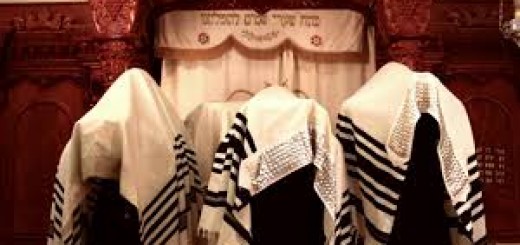By Rabbi Dovid Markel
The mishna in the tractate of Pesachim[1] states:
“What is the difference between the Passover as celebrated (by the Israelites while) in Egypt, and that observed by later generations? The Egyptian Passover-sacrifice… should be eaten with unleavened bread on the first night of Passover in a hasty manner; while in later generations the law of the Passover applies for the entire seven days of the festival.”
The mishna explains, that whereas the Pesach sacrifice that was eaten in Egypt was to be consumed in a hurry, the Pesach sacrifice of later generations need not be eaten hastily.
Rabbi Tzadok HaCohen of Lublin, in his work, Tzidkas HaTzadik[2] brings out an important lesson from this mishna in our service to G-d.
He explains, that the Pesach sacrifice that is eaten while still in Egypt corresponds to a person attempting to connect to G-d, though he still lusts for the passions of this world and is addicted to them.
When a person is bound to this world, he cannot take his time in serving G-d. If he has a moment of inspiration, he must seize it, lest his motivation dissipate. Perhaps during that momentary flash of inspiration, he may be able to detach himself from the confines of his personal Egypt and connect with G-d.
Once he has succeeded in separating himself from the passions of this world, he can once again return to serving G-d at a steady pace instead of a rushed one.
Rabbi Shneur Zalman of Liadi, the Alter Rebbe, explains a similar idea concerning the difference between the redemption from Egypt and the future redemption[3]:
“This [release of the soul from her exile in the body] is in the nature of the ‘Exodus from Egypt,’ in connection with which it is written, ‘The people had fled.’ At first sight, it is strange that it should have happened in this way. For, had Pharaoh been requested to liberate them forever, would he not have been compelled to let them go? But because the evil in the souls of the Israelites was still in its strength in the left part— for not until the Giving of the Law did their impurity cease— yet their aim and desire was to free their divine souls from the exile of the sitra achra, which is the ‘Defilement of Egypt,’ and cleave to Him, blessed be He, as is written, ‘The Lord is my strength and my fortress and my refuge in the day of affliction…’ ‘My high tower and my refuge . . .’ ‘And He is my escape…’ [So, too, was the physical exodus from Egypt in a manner of escape]. Hence, in the time to come, when the Lord will remove the spirit of impurity from the earth, it is written of it, ‘[ye shall not go out in haste], nor go by flight, for the Lord will go before you….'”
In the redemption from Egypt, the Jewish people still had evil in their hearts and souls and therefore ran away quickly from Egypt. However, when Moshiach will come, the evil will be vanquished from the Jewish heart, and therefore one need not leave hastily.
There is however, an important difference between the way Reb Tzadok frames the importance of haste and the way the Alter Rebbe does so. While the Reb Tzadok says that the reason for the rush is to catch the inspiration while one still has it, the Alter Rebbe explains that as long as there is evil with the person, an individual must do all that is humanly possible to run away from it.
According to Reb Tzadok, it seems that one can only run away from evil while inspired, and therefore a person must seize the moment before it departs.
The Alter Rebbe implies though, that a person can and must run away from evil, even when they are uninspired. The manner of doing so however, must be that they run away from the evil.
May we indeed rush to conquer our evil, both in times of inspiration and the lack thereof. When we accomplish this, we will speedily merit the final redemption!
[1] 9:5.
[2] Ch. 1.
[3] Tanya, Likutei Amarim, Ch. 31.






















